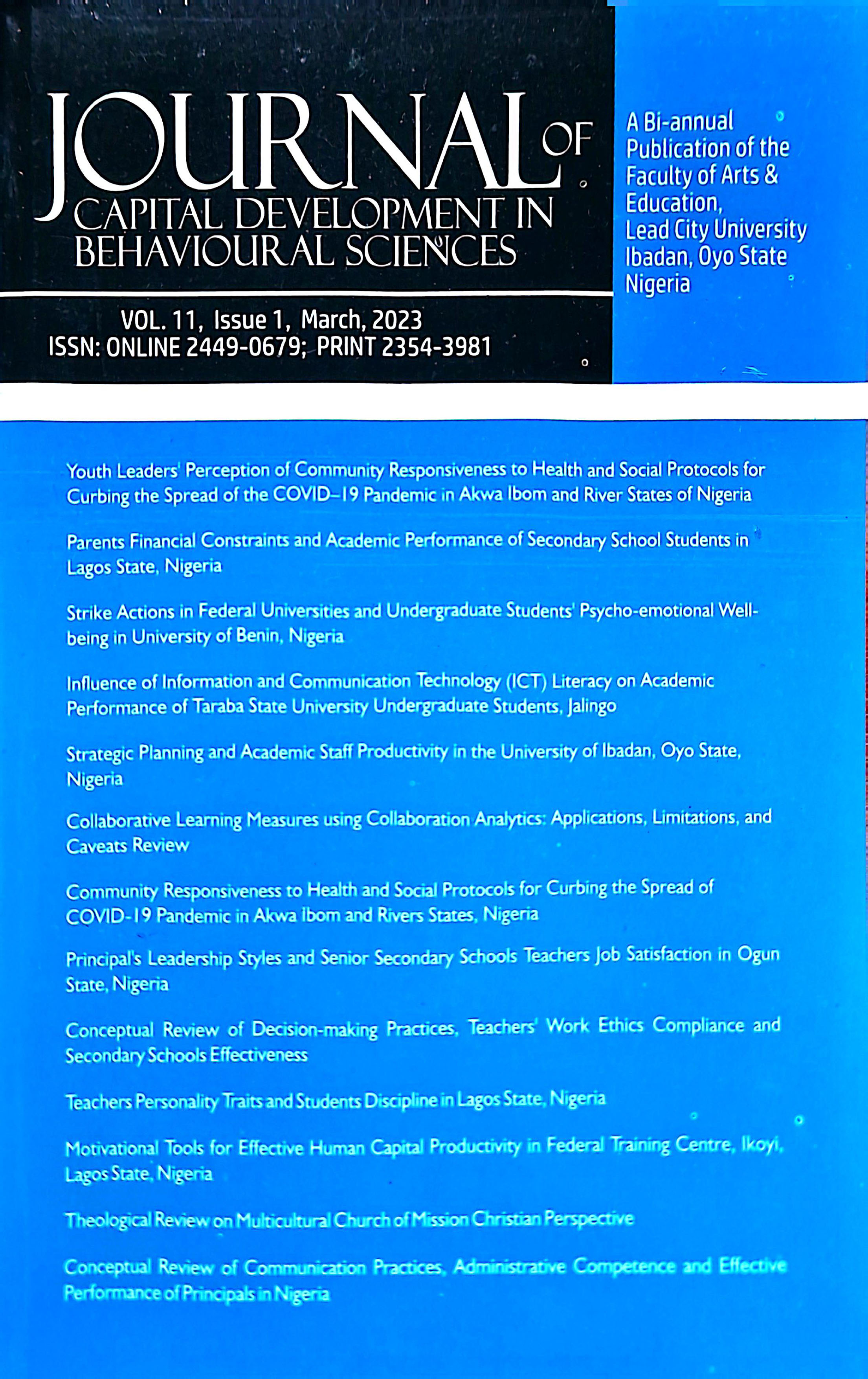Community Responsiveness to Health and Social Protocols for Curbing the Spread of COVID-19 Pandemic in Akwa Ibom and Rivers States, Nigeria
Keywords:
Community Responsiveness, Health Protocols, Social Protocols, COVID-19 PandemicAbstract
This study examined community responsiveness to health and social
protocols for curbing the spread of the COVID-19 pandemic in Akwa Ibom
and Rivers States of Nigeria. Two (2) research questions and two (2)
hypotheses were answered and tested in the study respectively. The design
of the study was the descriptive survey and the population as the 3624
villages in Akwa Ibom and Rivers States. These states have a corresponding
number of 3624 Village Heads from which 1087(30%) were selected as
sample using the proportionate stratified random sampling technique. The
subjects of the study responded to a 39-item instruments titled Community
Responsiveness to Health and Social Protocols for COVID-19 Pandemic
Curbing Scale (CRHSDCPCS), designed by the researchers in the modified 4-
point Likert Scale model, with a reliability index of 0.85, obtained using
Cronbach Alpha Statistical procedure. Mean and standard deviation were
used in answering the research questions while z-test was used in testing the
hypotheses at 0.05 level of significance. The results of the study show that,
community responsiveness to health and social protocols for curbing the
spread of the COVID-19 pandemic in the two states was to a high extent
and that no significant differences existed between the respondents on the
extent of responsiveness to the protocols. The study concluded that
communities made great efforts in adhering to the health and social
protocols for curbing the spread of the COVID-19 pandemic through the
extent of their adherence did not have a comparable balance. Consequently,
it was recommended that, stakeholders in communities’ health and social
protocols should continue to enlighten community residents on the need to
adhere to health and social protocols during and after emergencies by
showing good examples in their actions since the pandemic is yet to be over.

